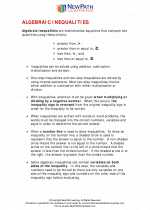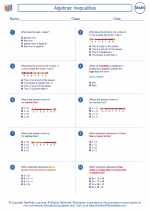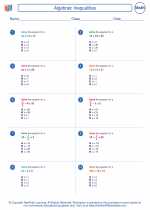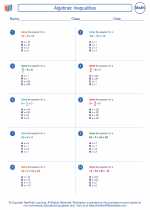Zero Rule in Mathematics
The "zero rule" in mathematics is a simple but important concept that applies to various mathematical operations. It states that when you add (or subtract) zero to any number, the value of the number remains the same.Examples:
- 5 + 0 = 5
- 12 - 0 = 12
- -3 + 0 = -3
Applications:
The zero rule is fundamental in arithmetic and algebra, as it simplifies calculations and helps in understanding the properties of numbers. It's also used in solving equations and manipulating expressions.Study Guide:
To understand and apply the zero rule effectively, consider the following study guide:- Practice Addition and Subtraction: Work on simple addition and subtraction problems involving zero to reinforce the concept.
- Real-life Examples: Identify real-life situations where the zero rule applies, such as adding zero to a quantity or subtracting zero from a value.
- Properties of Numbers: Explore the properties of numbers, including the additive identity, to see how the zero rule fits into the broader framework of mathematics.
- Equations and Expressions: Solve equations and simplify algebraic expressions by applying the zero rule as a foundational principle.
- Challenge Problems: Tackle challenging problems that involve zero and test your understanding of the rule in different contexts.
◂Math Worksheets and Study Guides Seventh Grade. Algebraic Inequalities
Study Guide Algebraic Inequalities
Algebraic Inequalities  Worksheet/Answer key
Worksheet/Answer key Algebraic Inequalities
Algebraic Inequalities  Worksheet/Answer key
Worksheet/Answer key Algebraic Inequalities
Algebraic Inequalities  Worksheet/Answer key
Worksheet/Answer key Algebraic Inequalities
Algebraic Inequalities 

 Worksheet/Answer key
Worksheet/Answer key
 Worksheet/Answer key
Worksheet/Answer key
 Worksheet/Answer key
Worksheet/Answer key

The resources above cover the following skills:
Algebra (NCTM)
Represent and analyze mathematical situations and structures using algebraic symbols.
Use symbolic algebra to represent situations and to solve problems, especially those that involve linear relationships.